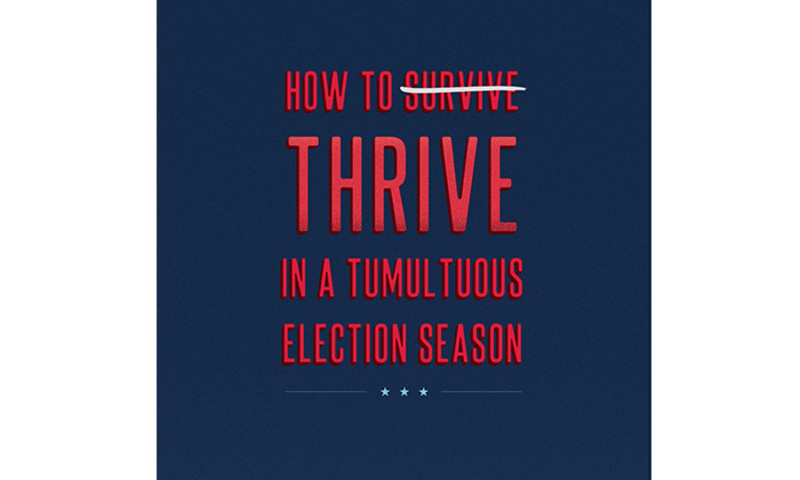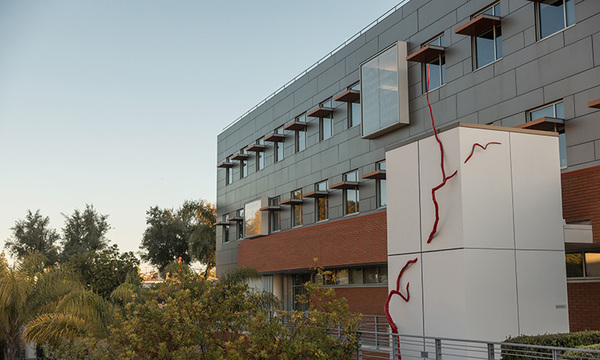Pastoring during an election year comes with its unique challenges. How can pastors view this upcoming presidential election season as a providential opportunity to help their congregations thrive in the midst of political strife and division? Pastors care deeply about the unity of the Spirit and the bond of peace. Jesus ŌĆö the Good Shepherd ŌĆö expressed this desire the night before he died, when he prayed that his people might be one (John 17). In this article, Talbot faculty share insights on how pastors can shepherd their congregations with biblical intentionality and help them flourish instead of merely surviving this election season.
Develop the Right Kind of Fear

Fear is everywhere. The state of our lives, families, churches, nation, and the world can cause discouraging and depressing fear. Many are still reeling from the effects of the pandemic and isolation caused by lockdowns and the racial and political upheaval during that time. Images and news of the wars in Israel and Ukraine come across our screens every day. And the next election, which is right around the corner, promises to once again be a source of division, rancor, and worry.
Ground your flock in the Spirit of knowledge and the fear of the Lord. Fear can become debilitating. How do we and those we lead find freedom from fear? IŌĆÖd like to suggest that perhaps the problem may be the lack of the right kind of fear ŌĆö fear of the Lord. As we consider the life and ministry of Jesus, we see that it was filled with relentless difficulty that came from every direction. He never minimized how difficult life is but navigated through it with Spirit-dependent submission to the will of his Father. How did he do this? Listen to this description of the Messiah from the Prophet Isaiah: ŌĆ£And the Spirit of the Lord shall rest upon him, the Spirit of wisdom and understanding, the Spirit of counsel and might, the Spirit of knowledge and the fear of the Lord. And his delight shall be in the fear of the LordŌĆØ (Isa 11:2ŌĆō3 ESV). Jesus went through the uncertainties and troubles of life grounded in the Spirit of knowledge and the fear of the Lord. A biblical estimation of GodŌĆÖs greatness, sovereign power, and majestic holiness will flood our souls with a healthy fear of him that leads to confidence, faith, and joy. Jesus the Messiah found his delight in a fear of the Lord ŌĆö and so should those who depend on and follow him. As we seek a greater understanding of God together as GodŌĆÖs people, we should experience the corresponding fear of him that brings delight and rest in his sure promises of a good and glorious outcome of everything ŌĆö even the hardest things life brings (Rom. 8:28).
Equip the saints to trust in God. The priority when we gather and equip the saints is to fortify our trust in our good, wise, sovereign God so that we can grow in maturity as disciples of Jesus. Consider these words by John Flavel in his Practical Treatise on Fear: ŌĆ£If men would dig to the root of their fears they would certainly find unbelief there. Why are you afraid, O ye of little faith? (Matt. 8:26). The less faith, still the more fear: Fear is generated by unbelief and unbelief strengthened by fear: ŌĆ”and therefore all the skill in the world can never cure us of the disease of fear, till God first cure us of our unbelief; Christ therefore took the right method to rid his disciples of their fear.ŌĆØ The uncertainties and troubles of life combined with the anxiety-producing effects of social media and the sensationalist 24-hour news cycle easily wear us out and kill our joy. We need discipline to fix our eyes and hearts on the character of God. As Michael Reeves says in this excellent book Rejoice and Tremble, ŌĆ£Anxiety grows best in the soil of unbelief. It withers in contact with faith, and faith is fertilized by the fear of God.ŌĆØ Leaders in the church need to continue to grow together with those they lead as we combat unhealthy fear and cultivate hearts of growing holy fear and trust in our trustworthy God.
ŌĆō Erik Thoennes (Professor of Theology)
Beware of Anger
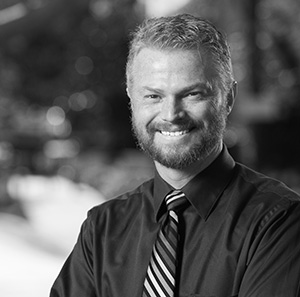
Few things raise temperatures like politics. High stakes and clashing viewpoints heat the cauldron of anger until it boils over. Citizens of the heavenly kingdom should work toward the good of the earthly ones (Jer. 29:7), but itŌĆÖs easy to despair that weŌĆÖll be able to do it without being burned.
Distinguish between righteous and unrighteous anger. Paul instructed us to ŌĆ£be angry and do not sinŌĆØ (Eph. 4:26). I have it on good authority that this is easier said than done. Calvin said: ŌĆ£the great weakness of human nature renders this exceedingly difficult.ŌĆØ Yep.
Christians throughout the centuries have advocated avoiding anger altogether, since sin seems to follow it so closely. We get angry about the wrong things in the wrong ways and in the wrong amounts. Anger can be subtle or blatant. It often skews our vision and prevents us from seeing the truth. But injustice and evil rightly rouse anger. Even when ŌĆö maybe especially when! ŌĆö our anger aligns with GodŌĆÖs righteous character, we are tempted to sin.
Paul doesnŌĆÖt advise us not to be angry. Instead, we need a wise, virtuous, and productive handling of our anger.
In a recent study, my colleagues and I found that anger was greater when a scenario was framed as violating moral principles than when it was framed in a neutral way. That makes sense. We also found that when participants got angry they were motivated to move against or away from the morally violating situation. Anger tends to lash out or avoid. Again, it makes sense. Anger moves to condemn and punish.
But for ŌĆ£the new self, created after the likeness of God in true righteousness and holinessŌĆØ (Eph. 4:24), thereŌĆÖs another option: moving toward others. When you and I incited GodŌĆÖs righteous anger against us as his enemies, he saved us by grace in the death of Christ, his Son (Eph. 2:1ŌĆō10). We imitate God through righteous anger, but we resemble God even more by loving and serving those who raise our ire (Eph. 4:32ŌĆō5:2). PaulŌĆÖs instructions here are for how Christians should treat our brothers and sisters: excellent practice for learning to love those who arenŌĆÖt yet in the family of God.
IŌĆÖve mentioned to a few people that IŌĆÖm praying that Jesus returns before the election, which usually receives a few chuckles. IŌĆÖm kind of serious about this. Yet, my prayer probably comes from a desire to avoid the troubles of the hour or from a fantasy of GodŌĆÖs swift judgment on all of the idiots, rather than for an actual desire for the shalom of the new heaven and new earth. I forget IŌĆÖll have to share GodŌĆÖs kingdom with the idiots ŌĆö and that I am one of them! My anger inclines me to move against or away, and not toward.
Stir up your congregation to love and good works. As we ŌĆ£consider how to stir up one another to love and good worksŌĆØ during election season, are we orienting our words and actions toward increasing love for others or merely inciting their righteous indignation? Framing our sermons and other communications with love encourages moving toward those for whom Jesus died.
When entertained, anger breeds ŌĆ£bitterness and wrath and anger and clamor and slander ŌĆ” maliceŌĆØ (Eph 4:31). Can we sever the link between anger and its typical outcomes before Satan gains opportunity? We may maintain respectability by avoiding the outward expression of malice and ill-intent. But how much anger do we harbor in our hearts by supporting those who do our clamoring and slandering for us (in the media, or policies, or campaign speeches)?
Cultivating gentle, tenderhearted, patient, and kind love helps us turn aside from the sinful excesses of our anger (Prov. 30:33) and toward others that all may be reconciled to Christ (Eph. 1:10; 2:11ŌĆō22).
ŌĆō Jason McMartin (Professor of Theology)
Pursue Peace Within Wisdom and Winsomeness
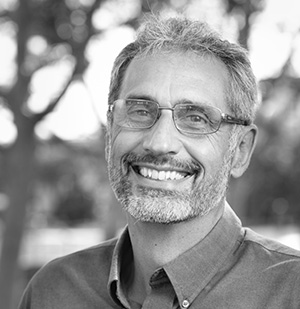
As the 2024 election cycle bears down upon us, many dread a repeat of the previous election cycle: the same candidates, the same arguments, and a reopening of barely healed wounds. Nonetheless, Christians are to be a source of hope ŌĆö a light shining in a dark place. Here are a few suggestions for making our churches a bit more peaceful than our public square.
Avoid divisions, promote discussions. Political issues are complicated ŌĆö if they werenŌĆÖt, they would already be solved. Even when we agree on ends, the means are hard to agree on. For example, we might agree that no one should live in poverty, but should we pursue this by means of a robust social safety net or a robust economy? There is always room for faithful disagreement. Complicated issues invite discussions rather than proclamations. Invite thoughtful, theologically sophisticated, and politically informed people to your church. Make time for in-depth presentations and real discussion. Political convictions are like math problems ŌĆö it is not enough to get the right answer; you have to show your work.
Treat the election cycle as a spiritual formation exercise. If you want to cultivate the wisdom from above that is peaceable, gentle, open to reason and impartial (James 3:17), you might try an election year dietary change ŌĆö not of your food intake but your news intake. HereŌĆÖs a simple fact: You donŌĆÖt get better informed by listening more and more to the same news source; you just get more polarized. If you want to develop impartiality or openness to reason, check out a news feed like allsides.com that aggregates news from across the political spectrum. Read good sources that advocate for views other than your own. It will balance your news diet and help cultivate impartiality and open mindedness.
You might also audit your social media ŌĆö both your clicks and your posts. Does your newsfeed look more like the works of the flesh (enmity, strife, and fits of anger), or the fruit of the Spirit (kindness, goodness and gentleness)?
Tend your church climate. Watch for climate change ŌĆö not global warming, but overheated conversations. Election years polarize us. Ask if members of the congregation feel like there is room for faithful disagreement. Often, if 70% to 80% of the congregation leans toward one political party, it feels like 100%. Those who see things differently when it comes to politics feel unrepresented and unwelcome. We need to intentionally create a climate that respects the differences in convictions within the congregation.
Pray, preach, post and podcast like God is still on his throne. Election cycles bring out our apocalyptic fears: If our party loses, the country is doomed. But it seems strange, wrongheaded even, for Christians to tune their voices to the key of fear. The church simply is GodŌĆÖs program in this age. It is not a political tool; it needs no political support. Christ promised that the very gates of hell would not prevail against it. The church is the bride for whom Christ is returning. The church is the pillar and foundation of the truth. It is the only human institution which has a future in the world to come. We should preach, pray, post, and podcast like we firmly believe this is true ŌĆö especially in the midst of an election cycle.
ŌĆō Rick Langer (Professor of Theology; Director of the Office for the Integration of Faith and Learning)
Be Personal and Prayerful Together
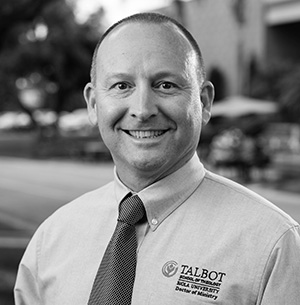
In 1998, as a new Talbot grad, I landed a dream pastoral job ŌĆö I joined one of my professors at a young church in the beach cities just south of LAX. Though we experienced the normal bumps and bruises that come with shepherding GodŌĆÖs flock, for the first 22 years of ministry I was firmly convinced that my toast landed jelly-side up. The unity and camaraderie among our pastor/elders (we practice a plurality of leadership) was ideal, the love our congregation modeled for one another was healthy, and our reputation in the community was a light. We were on a good run, right up until March of 2020.
Much like Satan did to Job, everything we held dear was attacked (though not quite as quickly or thoroughly as Job). In a matter of months, we were forced to deal with unity issues among our leadership, love issues in our congregation, and reputational issues in the community. Covid lockdowns, racial strife (George Floyd was killed on May 25, 2020), economic uncertainty, and a contentious election year made it feel as though we were being attacked on all fronts. As with all trials GodŌĆÖs people face, there were lessons to be learned.
Heading into another contentious election season, I want to share two of the more valuable lessons we learned.
Foster personal relationships and interaction. Personal relationships and personal interactions are absolutely indispensable when navigating the chaotic waters of cultural quandaries. The Covid lockdowns (we are in Los Angeles County) meant months of no personal interaction with brothers and sisters. No personal interaction led to perhaps the most disheartening thing a pastor or friend has to deal with: people assuming the worst. Brothers and sisters in Christ, who no longer had personal interactions with one another, assumed the worst about one another and they shared it with the world on social media. The proverbial benefit of the doubt became scarcer than toilet paper and bleach wipes because thereŌĆÖs a link between giving the benefit of the doubt to someone and your personal relationship/interaction with that person. For example, there exists quite a difference in the political views of one of my daughters and her grandparents. Yet not once have we questioned the love they have for one another or the joy they have in one anotherŌĆÖs company. Their relationship and personal interactions far outweigh any political difference. They give the benefit of the doubt to one another. They donŌĆÖt assume the worst, namely that the other is morally inferior, or evil, because they disagree on politics. Perhaps the author of Hebrews was onto something when he wrote about not neglecting to meet together (10:25).
Pray corporately. The turning point for us, as a church, came through corporate prayer. Though we prayed quite regularly as individuals, and as a group (pastor/elders and staff) throughout 2020, it wasnŌĆÖt until we prayed together as a church that we began to move back toward health. It took us too long to realize that what we were ultimately dealing with was not ŌĆ£against flesh and blood, but against the rulers, against authorities, against the cosmic powers over this present darkness, against the spiritual forces of evil in the heavenly placesŌĆØ (Eph. 6:12). We gathered as a church and prayed through Ephesians 6. One elder read a phrase and then everyone meditated and prayed on that particular phrase; the elder would then close in prayer and another elder would repeat the process with the next piece of armor. That day was the turning point for our church.
WeŌĆÖre entering a new season of contentious politics. Satan is armed and ready to create chaos. This time around we plan to begin the fight with the armor of God and, ŌĆ£with power through his SpiritŌĆØ (Eph 3:16), maintain the unity, love, and light God has so graciously restored.
ŌĆō Brandon Cash (Associate Professor of Hermeneutics and Preaching; Chair of Christian Ministry and Leadership)
Remember Your Heavenly Citizenship

There is so much division and contention around us. People have different opinions, which become more evident during the election season. We all long for unity! However, unity is not something we pursue in our efforts; as followers of Christ, it is a gift we receive, affirm, and celebrate.
Celebrate the heavenly citizenship of all believers. A central theme of the New Testament is that all believers are strangers and pilgrims (immigrants) on this earth because we have eternal and heavenly citizenship, as stated in Philippians 3:20: ŌĆ£For our citizenship is in heaven, from which also we eagerly wait for a Savior, the Lord Jesus Christ.ŌĆØ Other passages that also teach this important reality are 1 Peter 2:11, Ephesians 2:17ŌĆō19, and Hebrews 11:13.
Consequently, all Christians are citizens of the country where they were born or live, but we are also immigrants in that place because we have heavenly citizenship. We all live with the tension of honoring our duties as citizens of both places. Despite our national identity, believers are united in Christ and part of a global community transcending all human borders. Celebrating our national identity and supporting our country as good citizens is important. Still, at the same time, we must honor the heavenly citizenship that we share with all believers in the world.
As citizens of a country, we must participate in elections and respect the government, but we must never confuse the laws of God with the laws of the world. However laudable, governments are imperfect, and Christians must live by heavenly standards of conduct. As Christians, we can celebrate our heritage and be good patriots, but we also celebrate our unity with other Christians worldwide. Our heavenly citizenship unites us and urges us to live according to divine values that are always perfect and promote all human beings' dignity and worth.
Remind your congregation that divine values transcend political interests. Amid differences of opinion and political agendas, Christians do not have to be adrift or divided. Political leaders and people with social influence often make decisions based on their own interests or are influenced by social or economic pressure. The Lordship of Christ guides us to place our allegiance only on Christ and his values. Human beings, created in the image of God, have more value than any economic agenda or political interests. Theologian Cornelius Plantinga, in his excellent devotional book Beyond Doubt, describes our relationship with the government and with God in this way:
The Christian church obeys the state, but obeys God first. The state is GodŌĆÖs instrument of justice and peace, but like all else, it needs reform. So, we offer obedience, but not reverence. We honor the state, and also keep an eye on it. Sometimes we honor the state by protesting its evil, and by refusing to give in to it. After all, Caesar is emperor, but Christ is Lord, and Christians are people who know the difference.
Christ has only one Church. Even though we are all different, we are members of the same body with believers worldwide. We are united in Christ regardless of our culture, language, nationality, and political preferences. Having political convictions and voting according to our conscience is essential. But let us never forget that we are one in Christ regardless of our opinions or preferences. Our unity becomes the light to this world that desperately needs hope in the present circumstances.
ŌĆō Octavio Esqueda (Professor of Christian Higher Education; Director of Ph.D. and Ed.D. Programs in Educational Studies)
Model Faithfulness and Encourage Hope
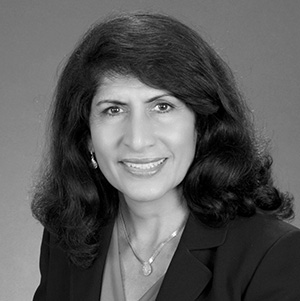
In their international bestseller The Leadership Challenge, authors James Kouzes and Barry Poster propose five practices, based on exhaustive research, that exemplary leaders implement in their leadership. Among those practices are a couple that I consider very important, such as modeling the way and encouraging the heart. Certainly, Christian congregations are not to be led as a business organization, but we can learn and use some leadership principles that apply to the work that church leaders do ŌĆö especially during times of confusion due to many voices and political agendas by different societal groups.
Christian congregation leaders play a critical role in how to lead and instruct church members. We live in a polarized context where many pastors and church leaders may be pondering the question, how do we best help our congregations as we approach our presidential election? As it is known, the tension is no longer whether congregants should fulfill their civic responsibilities as citizens of our country. It has to do with how we lead them and provide appropriate biblical instruction to make correct decisions and be able exercise their vote. Yet, we cannot tell them for whom they should vote, as in general, presidential candidatesŌĆÖ political agendas are not aligned with the ScriptureŌĆÖs teaching and what is expected from those who lead a country.
As shepherds of the flock, congregational pastors and Christian leaders are to teach them where our true identity is, model the way based on Christian values found in the word of God, and bring encouragement to our congregations and beyond.
Teach them where our true identity is. In a time like this, it is critical to teach our congregation members that our true identity is in Christ and not in adopting radical postures by identifying and supporting a political party with which they identify. We are called to provide sound biblical teaching and a practical theology that engages authentically with the current situations and surrounding contexts. We also can help them to learn how to pray. One of his disciples asked Jesus, ŌĆ£teach us to prayŌĆØ (Luke 11:1ŌĆō4). As he taught them how to pray, we can teach our congregations to pray informed of what is happening and how we need to put our confidence in the Lord.
Model the way based on Christian values. Christian congregation members are desperately seeking for models to follow. As leaders we have many opportunities to teach them biblical values and show them how to live those values by exemplifying a good model, as we live what we teach and say. Our responsibility as their spiritual leaders is not to get them to imitate us, but to point them to the biblical model that we find in JesusŌĆÖ teachings and New Testament writers, so they know how to behave within the wider public.
Encourage their hearts with Christian hope. As we listen to the disheartening news that pervades all communication and media channels, our human inclination is to lose hope. Yet, as Christian leaders we have the source of hope in Jesus and his Word. We can encourage the hearts not only of our brothers and sisters in Christ but also, we can share a message of hope to those who do not know him. In Psalm 27:13 the Psalmist wrote, ŌĆ£Wait for the Lord; be courageous and let your heart be strong. Wait for the Lord.ŌĆØ As leaders and members of the Christian community, letŌĆÖs stand firm on what we believe (Psalm 130:5). The Lord is our stronghold and we have a safe refuge in him.
ŌĆō Orbelina Eguizabal (Professor of Christian Higher Education)
Pursue Spirit-Empowered Love for GodŌĆÖs Family
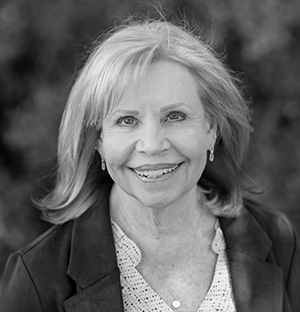
Jesus, in John 17:20ŌĆō26, prayed for all believers to have a relational unity that would reflect his own divine unity with the Father and the Spirit so we would fulfill the purpose we were created for. The community of the body of Christ, the church, is GodŌĆÖs evangelistic avenue to the world as we relate in love. We long, donŌĆÖt we, for the unity, stability, and continuity of these eternal truths amid the rapidly shifting sands of cultural values and patterns of behavior, and choices? The pace and complexity of our modern world have impacted families and the family of God with a particularly destructive force during an election year. Marjorie Thompson, in her book Family the Forming Center, says, ŌĆ£If we are going to look to spirituality for a sense of direction as individuals and church communities, we must look to it also as a primary resource for families, which constitute a mediating structure between the individual and the larger church. Only God, whose Spirit is free to create and recreate, has ultimate power to shape us.ŌĆØ
Nurture your church as GodŌĆÖs family. At the core of a biblical conception of family is the truth that humanity was created bearing the image of the relational Triune God. These images need to be awakened in the context of covenantal family relationships. All humans are born with the capacity for this love because of GodŌĆÖs unconditional covenant to creation to never stop loving us, repeated in Genesis 9:9ŌĆō10 to Noah, and again to Abram in Genesis 17. Out of this core virtue of love, the experiences of grace, empowerment, and intimacy, all are made possible. Thus, a definition of family might be: Family is where God intentionally placed each human to awaken, nurture, experience, and empower oneŌĆÖs created capacities to love in order to fulfill GodŌĆÖs purpose to reflect who he is to the world.
Even if these desires are not met in a childŌĆÖs family, the relationships between brothers and sisters in the family of God are to continue this work of awakening every human heart through the ŌĆ£one anothersŌĆØ commanded in Scripture. As the family of God grows in the complement and covenant of togetherness, they begin revealing to the world the unity of the Trinity Jesus prayed for us to experience in John 17.
Lean into a Spirit-empowered ministry to the whole family. Consequently, the family of God is where these experiences of love are to be empowered and lived out, and shaped by the Spirit of God. Some of the following experiences are some examples of what a family of God, led by the Spirit might practice during this election year:
- Love will be seen as a commitment to enhance the glory or reflection of each family member.
- They will see differences as important and desirable.
- They will see struggle as beneficial as they practice the ministry of reconciliation.
- They will see grief and pain as necessary as they face their sin and the truth of their messy and divided hearts. The struggle keeps them in the posture of humility to submit to God and each other to experience confession, forgiveness, and reconciliation.
- They will submit and wait for the guiding power of the Spirit of God within, rather than pushing for change or trying to change each other.
- The family of God will learn to recognize that indecision is truly no decision but rather learn to wait on the Spirit of God for more information.
- They will learn to worship and listen to God in prayer to teach them while they wait.
- The family of God will express themselves with the language of ŌĆ£IŌĆØ to tell the truth of their story rather than ŌĆ£YouŌĆØ to blame God or others for what is happening.
- The family of God will be shaped by the Spirit of God as we mirror the divine-human relationship to the world so each family will look different rather than the same.
- In the family of God, spiritual values will bought in the process of spiritual growth of the community, not just taught.
- The family of God will become the spiritual living center, where the capacities of reflecting the Image of God are empowered and lived out.
As God works in and through family ties, breaking through and using imperfect families to accomplish his purposes, families become a means of redemption and opportunity for ministry but kingdom relationships hold an even higher priority during cultural chaos than family relationships. We are called to prioritize our church communities and develop a sense of mission within the church, where instead of expecting the church to serve the family, the family needs to serve the church as they are all spiritual brothers and sisters of the one Father, God. Love is the main characteristic of the family of God (Eph. 4:13ŌĆō16) as we live out Spirit-filled lives bringing a testimony of GodŌĆÖs love and grace to the chaotic world around us.
ŌĆō Judy TenElshof (Professor of Spirituality and Marriage and Family; Director of Spiritual Formation Core Program)
 51┬▄└“
51┬▄└“